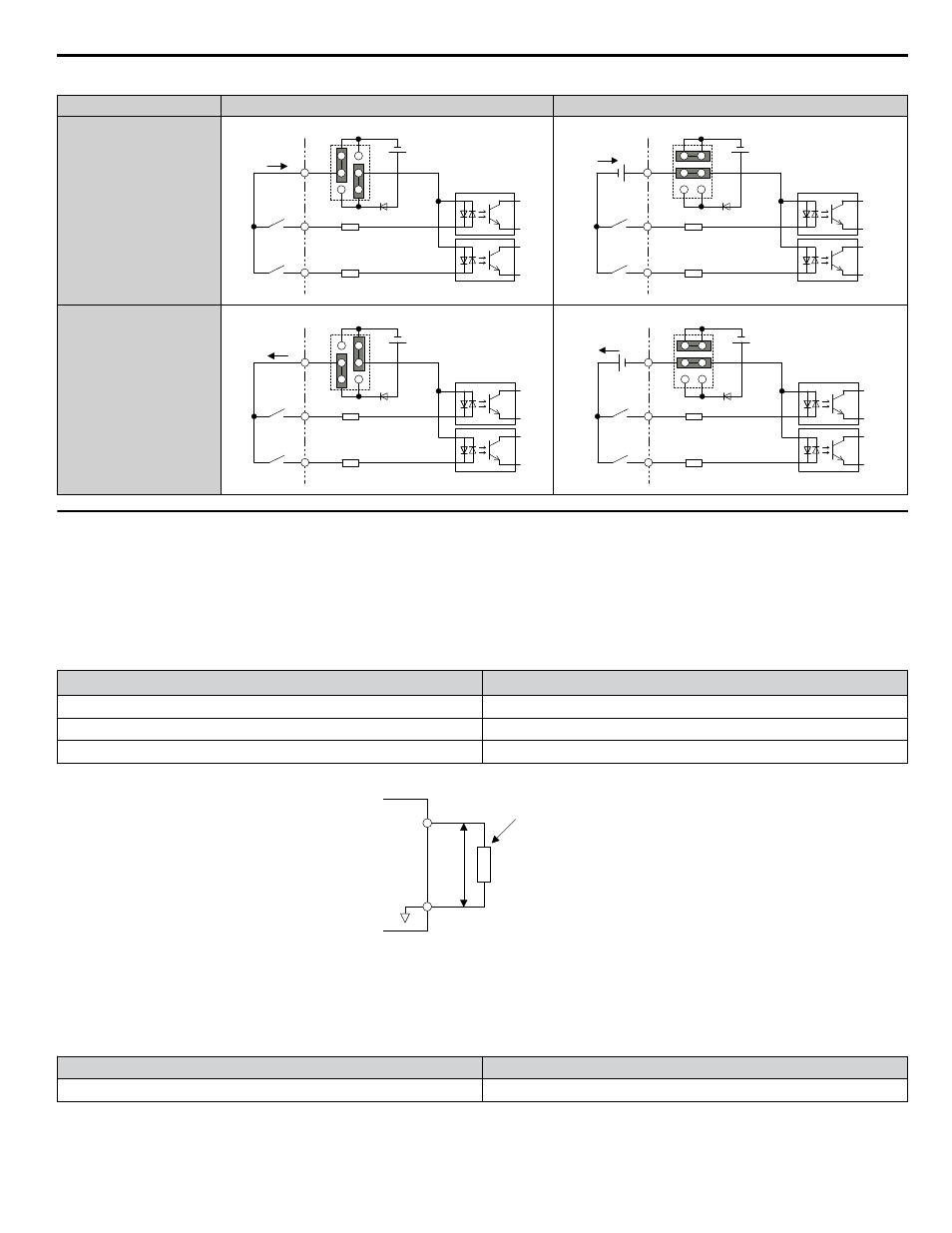Using the pulse train output, Inputs h1 and h2 as shown in, Table i.12 – Yaskawa U1000 Industrial MATRIX Drive User Manual
Page 35: Default: source mode, internal power supply), Using external power supply (sink mode), I.4 electrical installation

Table i.12 Safe Disable Input Sink/Source/External Power Supply Selection
Mode
Drive Internal Power Supply
External 24 Vdc Power Supply
Sinking Mode
24 Vdc
H1
H2
HC
Jumper S3
24 Vdc
H1
H2
HC
External
24 Vdc
Jumper S3
Sourcing Mode
24 Vdc
H1
H2
HC
Jumper S3
24 Vdc
H1
H2
HC
External
24 Vdc
Jumper S3
u
Using the Pulse Train Output
The pulse train output terminal MP can supply power or be used with an external power supply.
NOTICE: Connect peripheral devices in accordance with the specifications. Failure to comply may cause unexpected drive operation, and
can damage the drive or connected circuits.
n
Using Power from the Pulse Output Terminal (Source Mode)
The high voltage level of the pulse output terminal depends on the load impedance.
Load Impedance R
L
(kΩ)
Output Voltage V
MP
(V) (insulated)
1.5 kΩ
5 V
4 kΩ
8 V
10 kΩ
10 V
Note:
The load resistance needed in order to get a certain high level voltage V
MP
can be calculated by: R
L
= V
MP
• 2 / (12 – V
MP
)
MP
AC
V
MP
R
L
Load Impedance
Figure i.21 Pulse Output Connection Using Internal Voltage Supply
n
Using External Power Supply (Sink Mode)
The high voltage level of the pulse output signal depends on the external voltage applied. The voltage must be between 12
and 15 Vdc. The load resistance must be adjusted so that the current is lower than 16 mA.
External Power Supply (V)
Load Impedance (kΩ)
12 to 15 Vdc ±10%
1.0 kΩ or higher
i.4 Electrical Installation
YASKAWA ELECTRIC TOEP C710636 04C U1000 Industrial MATRIX Drive Quick Start Guide
35